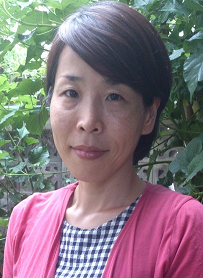December 7, 2016
by ISB Native Language Programs
0 comments
December 6, 2016
by ISB Native Language Programs
0 comments
National Anthem in 12 languages
November 21, 2016
by ISB Native Language Programs
0 comments
Bilingualism – benefits
November 2, 2016
by ISB Native Language Programs
0 comments
Ask Olga! The Emergence of a Granddaughter’s Three Languages
Many events have taken place since the beginning of summer. Our little potential trilingual is at the age of three. With seemingly perfect understanding of at least two languages, Russian and French – the third language, English, is beginning to emerge. All three are competing for dominance – more time spent in France this summer resulted in French gaining the upper hand. Michelle now attends a half-a- day playgroup in English with children from two and a half to five years old.
We are witnessing an explosion in expressive language – she is becoming a chatterbox both at home and at school! Michelle is mixing all the three languages in one ‘pot’, so to speak, treating the ‘original recipe’ creatively, mixing/substituting certain ingredients to serve a set purpose. A chef might use mango instead of apple when mango is more easily accessible. So it is with language, in linguistics it is called code mixing – Michele as many other young multilingual children mixes linguistic ingredients or chooses words that are more easily available and at the same time serve her conversational purpose. This always raises a question whether it is ‘normal’ or requires corrective measures. It might be reassuring to rely on data from similar cases: mixing continues till about the age of five. We know that Michelle is able to differentiate languages and is aware of code mixing – she knows that papa, mama and teacher at preschool name the same things differently. So her mixing is evident only in conversation.
One theory is that mixing happens for the following reasons: a) children use it as a relief strategy – when the necessary ‘ingredient’ is more easily accessible or available in the other language, b) when one of the two languages is dominant and c) when parents are multilingual and use several languages for communication at home. So we watch and as grandparents find ways to perform our linguistic task – to provide exposure to the language we use with Michelle and to supply the missing ‘ingredients’.
October 18, 2016
by ISB Native Language Programs
0 comments
Little girl speaking 8 languages
September 27, 2016
by ISB Native Language Programs
0 comments
Australian series on the importance of mother tongue education
September 21, 2016
by ISB Native Language Programs
0 comments
Mother Tongue ideas for the classroom
September 21, 2016
by ISB Native Language Programs
0 comments
Mother Tongue use at ISB
September 12, 2016
by ISB Native Language Programs
0 comments
Japanese after school mother tongue teacher
みなさん初めまして。 After schoolの日本語クラスを担当する大城和世(Ms.Kazuyo Oshiro)と申します。通算で8年ほど日本語を教えています。
バイリンガルの二人の息子(11歳と14歳)を育ててますが、パパとの会話や学校内ではタイ語という環境で、いかに子どもたちの日本語を伸ばすか? 親の立場で日々試行錯誤しております。
子どもが大好き、日本語を教えることが大好きで、このクラスを大変楽しみにしております。今回、日本語を母語にするISBの子どもたちに日本語を教えるにあたり、生徒たちにとって何が必要なのか?このクラスの目標を考えました。
Class Objective
何よりも、母語である日本語に興味を持ち、親しんでもらう。これが一番の目標になります。しかし、ISBの生徒たちには、それだけでは足りないと考えております。
ISBに通う生徒たちは、将来IBDPの取得を目指すケースが多いと思います。ご存知の通り、IBDPでは必ず2つの言語を学習しなくてはいけませんので、英語と日本語を選択される可能性が高いはずです。
もしもIB Japanese A(文学)を選択した場合、詩や長編小説を含めた文学作品を読み、課題をこなす必要があるため、日本語を使った下記のような能力が必要となります。
◆文章能力
◆読解力
◆分析力
◆想像力
◆表現力
◆プレゼンテーション能力
これらの能力を、日本語ネイティブと言えど、日本語での学習経験がない生徒がIBカリキ
September 6, 2016
by ISB Native Language Programs
0 comments



